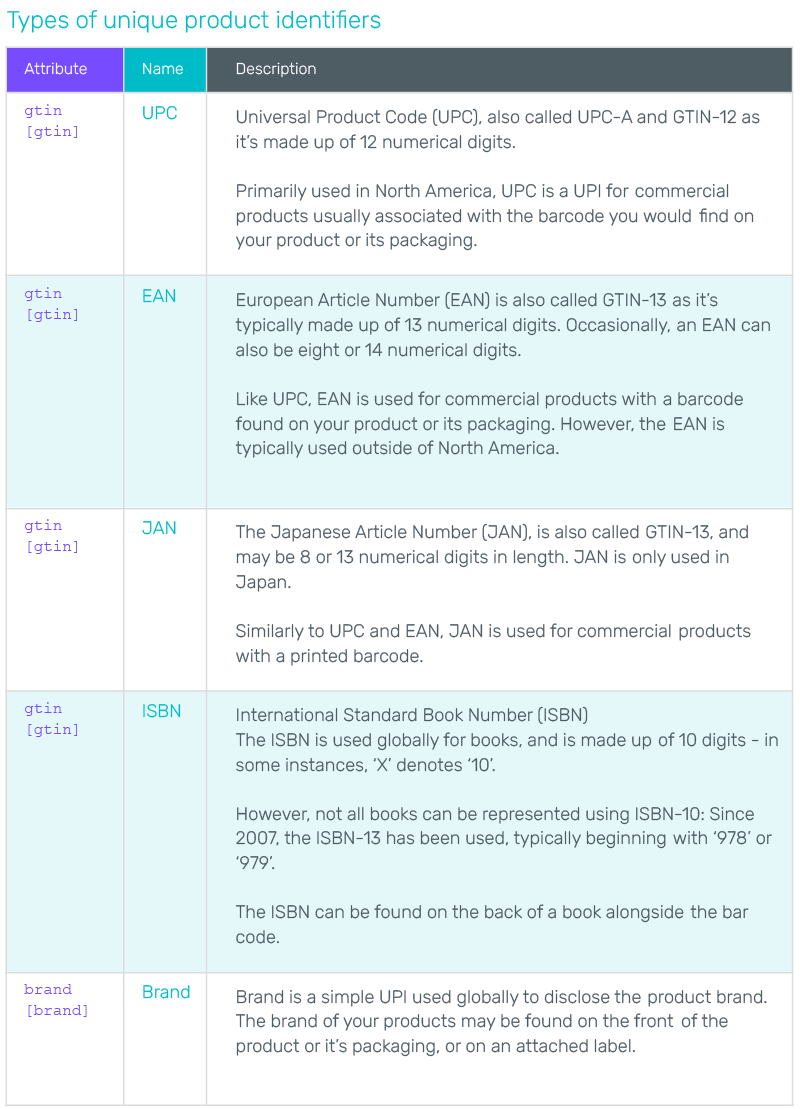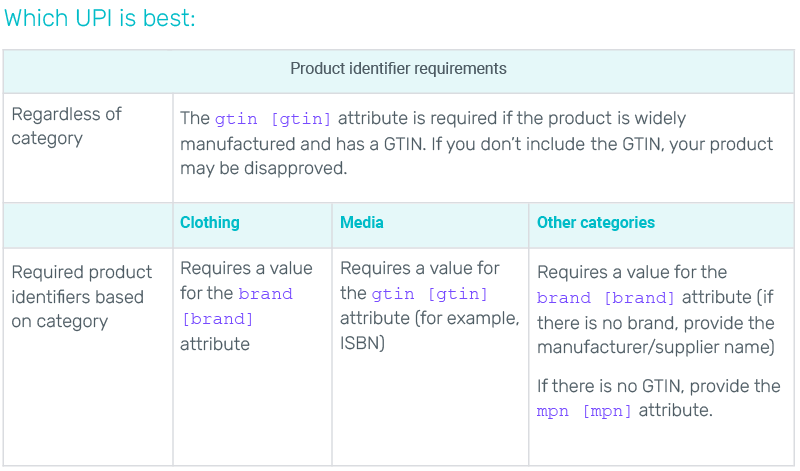Updated on October 3, 2024 | 3 minute read | Harrie-Anna Wormald
Home > Resources > Choosing Unique Product Identifiers on Google Shopping
With half a dozen Unique Product Identifiers to look out for, it can be a little confusing to work out which complicated wifi-password-esque string of numbers is the right identifying number for your product.
This article explains the Unique Product Identifiers that you may have to provide, how to troubleshoot issues with your identifiers and what to do if you don't have them.
Unique Product Identifiers (UPIs) define the product you're selling in the global marketplace. They distinguish the products you sell and help match search queries with your products.
UPIs are assigned to each product by the manufacturer, so if you sell the same product as another retailer, the UPIs will be identical. Common UPIs include Global Trade Item Numbers (GTINs), Manufacturer Part Numbers (MPNs), and brand names.
Not all products have UPIs, but if your product does, providing it can help make your ads and listings richer and easier for users to find. No UPI, no problem - you can make this clear in product data.

Depending on the type of product that you are selling, you'll submit different identifiers. Where possible, we recommend submitting all three attributes for your products ([gtin], [brand] and [mpn]) to help gain further relevance and boost the performance of your Shopping ads - and also to avoid disapprovals!

For all widely manufactured products (which are submitted with the condition attribute) that have a GTIN assigned, submit the following attributes:
If your product does not have an assigned GTIN, please try to include the following to get the most out of your Shopping ads:
There are a number of instances in which your product doesn't have a UPI. Some typical products include:
Custom-made items and media products such as DVDs, books and music, are among a group of products which are typically unbranded. If this is the case, just try to put in any and all UPIs you do have access to.
With all of this in mind, consider that your products may be disapproved or their performance limited if you submit products without a UPI when one is available.
For more help organizing and optimizing your product feed and Merchant Center, check out our main page.
Wondering what Bidnamic’s machine-learning, human thinking approach could do for your business? Why not book a demo with one of our Google Shopping specialists and optimize your Google Shopping approach.

